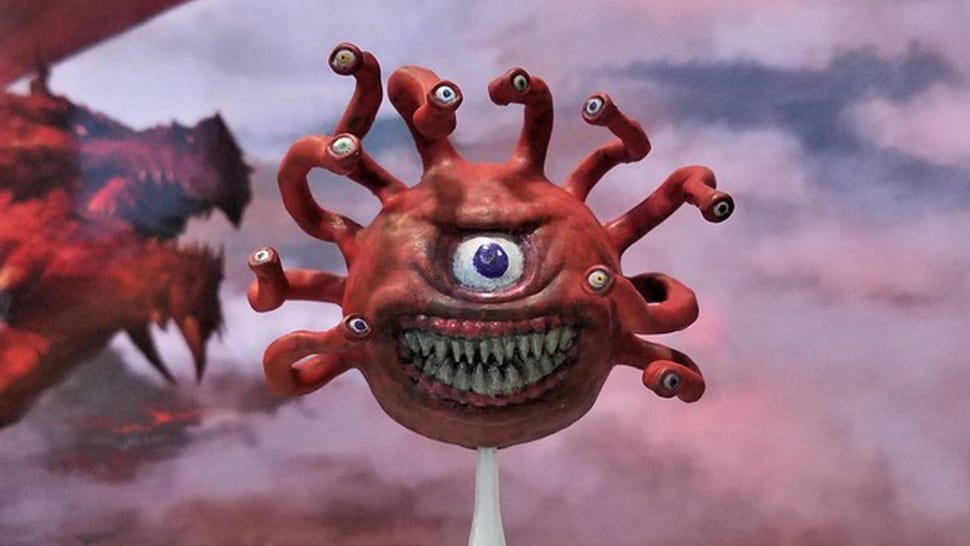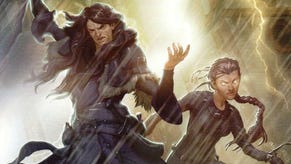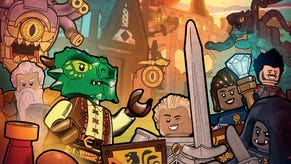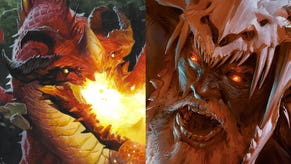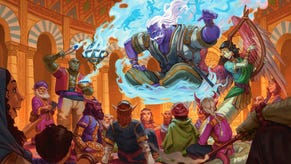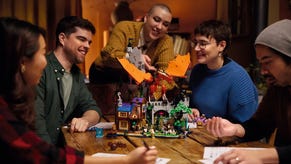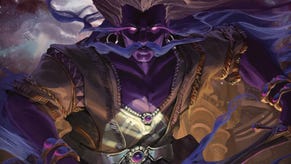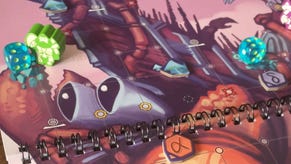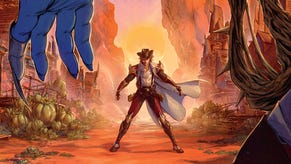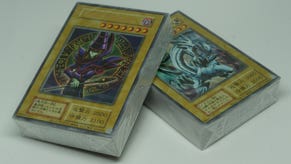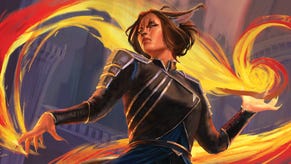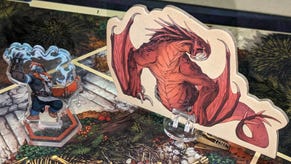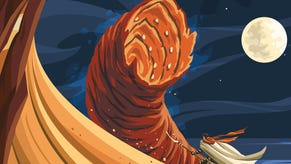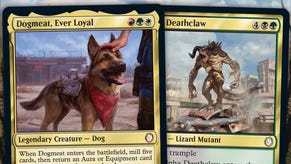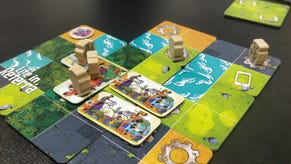Unofficial Dungeons & Dragons miniatures are allowing Patreon creators to turn their hobby into a career
High of the beholder.
Alex Zaragoza is on the verge of making miniatures full-time. His business, Cast N Play, consists of three sculptors and two concept artists; every month they release a batch of 60 new 3D-printable models, complete with terrain, weapons and modular limbs, which can be accessed directly by supporters of the company's Patreon page.
Cast N Play's archive speaks for itself. There's a panoply of plastic beasts - axe-rearing trolls, agile wood elves, cozy treehouses and vindictive treants - crafted with the tender love and care of a Games Workshop mould, except that with a Cast N Play membership, they can be added to your RPG campaign after a few minutes in front of a 3D printer. The cost? $12.99 (£10), billed every 30 days. Zaragoza has attracted over 1,600 patrons; that's a severe disruption in the still relatively niche tabletop industry.
"We hadn't even finished editing our Patreon page, nor shared it with anyone," remembers Zaragoza, when he first set up the Cast N Play storefront in 2019. "Then, out of the blue, when we got our first patron. Getting that early $1 supporter was such a validating experience that made us think: 'Hey, maybe this is actually going to work.'
"Between Patreon, our stores and commissions, we just started making enough money for most of the team to be full-time. I personally still have a day job in the tech industry but hope to go full-time as well in the near future."
For years, the grunt work of being a dungeon master in tabletop RPGs such as Dungeons & Dragons - writing good campaigns, drawing compelling maps and supplying the pewter statues that populate the catacombs - was a labour of love. You could either take on all of those responsibilities yourself and dream up fantasy lands with scratch paper, or venture to a local game store, where monoliths such as D&D warden Wizards of the Coast and current Star Wars RPG publisher Fantasy Flight would sell you all of that arcane paraphernalia at a hefty cost. Patreon, then, represents a substantive loosening of that consumer bind.
Getting that early $1 supporter was such a validating experience that made us think: 'Hey, maybe this is actually going to work.'
Cast 'N Play is only the tip of the iceberg. There are innumerable Patreon drives supplying tabletop hobbyists on an independent basis, completely disassociated from a major publisher. PrintableHeroes sells gorgeous cardstock miniatures for those who don't have a 3D printer around the house. Currently, it's generating $12,140 a month. Dynamic Dungeons creates lush, fully animated maps which can be projected onto a table screen: $17,205. The Griffon's Saddlebag comes up with creative new items that can be slotted into any ongoing Dungeons & Dragons 5E campaign: $11,752.
Like every other business on Patreon, these tabletop companies are subscription-based, meaning that their customers are eschewing the traditional Wizards-sanctioned $80 box of beasties in favour of a much more manageable stipend. For the creators themselves, it means living in a blessed existence where their tinkering hobby is able to masquerade as a full-time job.
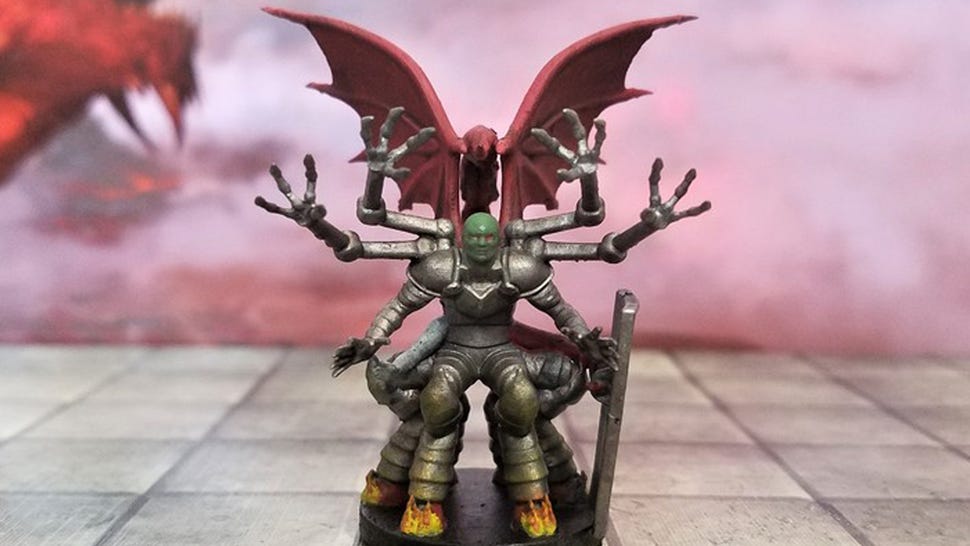
"I absolutely love what I'm doing now," says Miguel Zavala, another sculptor who's turning a full-time profit off his 3D printer schematics. "I work for about eight to ten hours, taking regular short breaks between each model. And on the weekends I don't work - and if I do it's for something fun that I wanted to work on the side."
Zavala studied 3D modelling in college, but through two Iraq deployments and his civilian life he scarcely used those skills for professional art. As with most people who've found themselves in the Patreon tabletop business, his passion was reignited by the democratisation of the 3D printer. Zavala started posting his prints on Reddit, where he was met with comments encouraging him to take his venture a little more professionally.
"I made a black dragon first, then blue, then red," he says. "Soon I was off modelling the whole [Dungeons & Dragons] Monster Manual - and the rest is history."
Today, Zavala is back in the career he majored in. Anyone can go to his Patreon and download his gorgeous models for free. His gallery shows off an entire compendium's worth of baddies derived from the Dungeons & Dragons 5E sourcebook Mordenkainen's Tome of Foes. Gluttonous dreadnaughts, chittering demons and the sinister undead - all available to all those who enter Zavala's shop of horrors. Those who hit Zavala's more ambitious donation thresholds earn access to his entire Google Drive of 3D printer blueprints - more than 1,800 in total - drawn from the whole breadth of D&D spelunking.
"I also offer higher-tier patrons access to a separate drive that has about 1,000 models that are safe for commercial use," adds Zavala. "If someone wants to sell prints of neutral intellectual property creatures like goblins, dragons or generic adventurers they are more than welcome to use my files. I also offer my patrons access to a request board where any patron, regardless of tier, can put their request there and I'll model it."
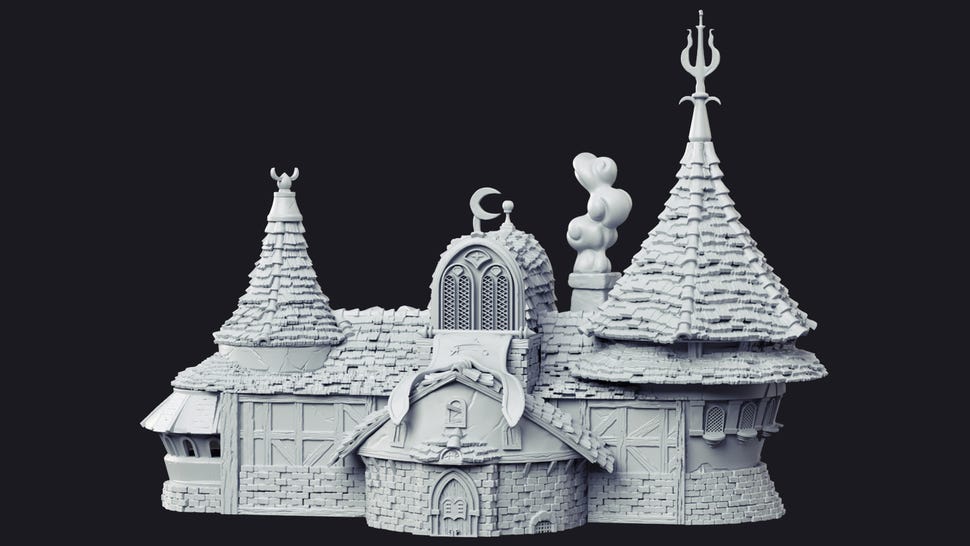
This brings us to the war elephant in the room. Zavala tells me that, five years ago, he met a few Wizards of the Coast bigwigs at a convention. They told him that they loved his art, and loved his passion, but asked that he never merchant any of his prints that are based off of Dungeons & Dragons IP. Technically speaking, Zavala is already avoiding this pitfall. Everything he creates is available for free, and many of his patrons support him, primarily, to show solidarity for his hard work. This framework allows Zavala's D&D work to thrive under the wide blanket of fan art. But as third-parties continue to infiltrate the tabletop syndicate with their own, market-subverting rackets, those questions are only going to get more complicated.
I'd prefer to just keep things free and simple.
"I'm not sure what [Wizards’] stance is on sales now," adds Zavala. "But I'd prefer to just keep things free and simple."
Zavala was the only creator who was willing to speak to me about the knotty legal issues that surround the tabletop industrial complex. Zaragoza said plainly that he "didn't have a good answer" to my questions. Another modeller, David-Lee Whitaker, echoed the same: "I haven't had any contact with Wizards of the Coast. I don't know their business." No creator wants to ruffle the salutary neglect that's paying them so well. (Wizards, for its part, declined to go on the record for this story.)
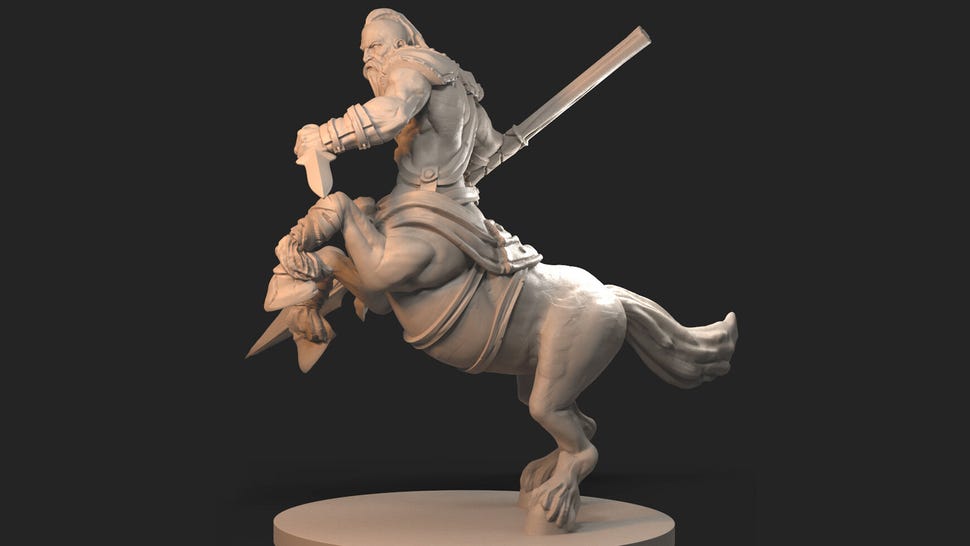
Thankfully, after a bit of convincing, I was able to get Jim Butler, the vice president of marketing and licensing at Paizo, on the phone. Paizo is most famous for tabletop RPGs Pathfinder and Starfinder, and therefore one of the prime mediums for the subscription-based sculptors of Patreon. Much to their relief, Butler doesn't see a reckoning coming anytime soon.
If they're trying to use Pathfinder or Starfinder as a means to promote their business, that's when they cross the line.
"It really depends on the context. If they're saying, 'Hey these minis are useful for Pathfinder, and Dungeons & Dragons, and Star Wars or whatever else,' that's one thing to us," says Butler. "But if it's something else - if they're trying to advertise their product as Pathfinder minis [specifically] - that's a little bit different. If they're trying to use Pathfinder or Starfinder as a means to promote their business, that's when they cross the line and they need a licence. We know there's a lot of stuff going on out there."
It's hard to predict the future from here. 3D printing is only going to infiltrate more homes, and that will inevitably loosen the grip of publishers requiring players to purchase official accessories. That may be a win for the global consumer, but it’s a tragedy for copyright law. If a company like Wizards of the Coast ever stands up and sends a cease-and-desist to Patreon shops offering premium access to their Waterdeep catalogue, it will be difficult to know who's right or wrong. (Both legally, and spiritually.) For now though, Butler remains optimistic. He remembers the introduction of the Dungeons & Dragons Open Gaming License in 2000, which allowed creators to construct brand new D&D content derived from the official texts. That policy directly led to the creation of Pathfinder. As far as Butler's concern, the Patreon wave is just another evolution.
As access to capital opens up, it's made it easier for everyone to get in.
"The bar to get into the business used to be really high. You had to come up with a better gaming system than D&D and publish it yourself. Then [after the Open Gaming License] we said, 'Here's all the rules and a built-in fan base,' that led to a wave of one- or two-person shops producing all sorts of stuff," he concludes. "I think Patreon has taken that to the next level. As access to capital opens up, it's made it easier for everyone to get in. Overall I think it's a great place for the industry to go. The hobby is stronger now than it was back in the '90s.”
